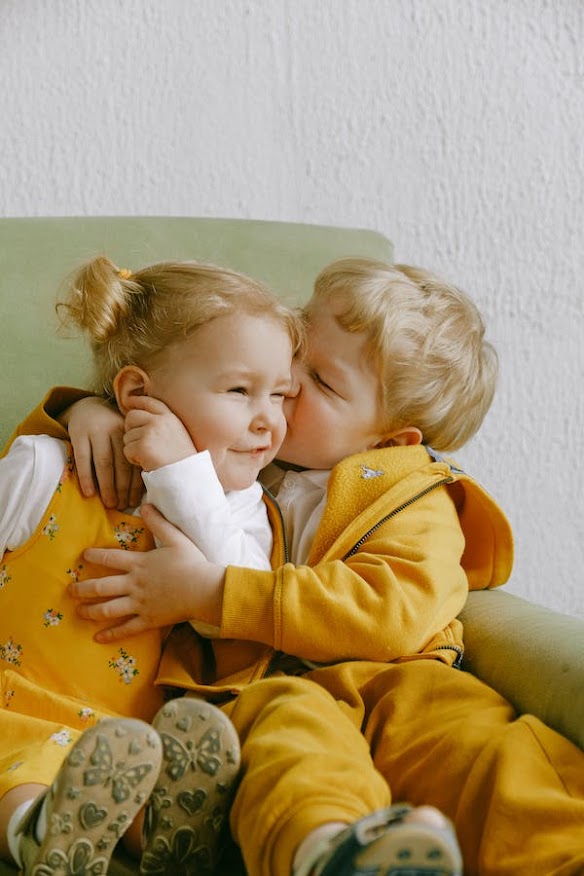Learning to recognize the signs of envy in your friends will help you address the problem as early as possible and improve your relationship.
Envy in friendship is an unpleasant reality: not everyone can be happy about their friends' successes. When others talk about their achievements and accomplishments, some people have to admit that they would also like to be in that situation. Positive envy (white envy) can activate and drive you to achieve similar successes. Destructive envy (black envy), on the other hand, makes the envious person himself and his friends unhappy.
It is not always easy to recognize envy in friendship because we sometimes close our eyes or interpret certain situations positively because we do not expect this behavior from a friend. After a brief definition of envy, let's look at typical behaviors that envious people often display.
Envy destroys your happiness
We speak of envy when we really want to have something that others have. This emotion includes sadness and anger directed against the person who has the desired object, job, or relationship that you yourself dream of. Envy has a clear social function: it promotes motivation, which helps us develop and improve. However, too much of it is harmful.
A paper published in the journal Personality and Social Psychology Bulletin reminds us that healthy envy is useful because it can trigger improvement and change.
This is how you recognize envy in friendship
Envious behaviors are very subtle and sometimes confusing in adulthood. Pay attention to the following features, among others:
1. The envious person is not happy for you
A person who cannot rejoice at the successes of his friends sees in them his own shortcomings and weaknesses. She feels bad and reacts accordingly when you talk about your happiness.
2. She tries to hide her envy
If the person is aware of their envy, they may try to hide this emotion because they know that this is not appropriate in a friendship. Nevertheless, she feels that way and you can see the envy in her nonverbal language: a forced smile, a gesture of rejection, or distance can indicate it.
3. The envious person belittles your successes
Does your boyfriend or girlfriend have a habit of treating your achievements as normal or downplaying your successes? This person may feel less important and have low self-esteem.
4. She criticizes you in public or behind your back
Envy in friendship can manifest itself through criticism, humiliation, or betrayal. Instead of directly addressing problems or seeking solutions, the jealous person speaks or acts behind your back.
5. The envious person withdraws when you are successful
When it comes to celebrating your successes, the envious person withdraws. She feels uncomfortable and is unable to deal with this situation differently.
6. She wants to reap your laurels
The envious person is always ready to help you in difficult times. However, if you succeed afterward and achieve success again, she wants to take the credit and reminds you of it.
7. The jealous person copies your behavior
This doesn't have to be harmful, because in a friendship there are often similarities and affinities. But it can also go too far if your jealous boyfriend or girlfriend imitates you in everything.
8. Competitiveness in friendship
Envious friends try to outdo you, to always be better, and to achieve higher goals. In doing so, they try to compensate for the perceived disadvantage that plagues them.
9. The envious person is overly interested in your problems
Envy in friendship can be expressed through excessive expressions of interest. It is not a sincere intention to support or listen to you. The envious person tries to compensate for their feeling of inferiority by talking to you about your problems. Afterward, she may be in a good mood but not offer you any help.
10. Boycott in friendship
Some people give bad advice because they feel jealous. They try to put obstacles in their friends' way to prevent their success. If it actually comes to this, it is time to distance yourself or take other measures to stop this situation.
Envy in friendship: what to do?
Envy ruins friendships and fuels conflict. However, there are not always bad intentions behind it. A study published in the International Journal of Social Psychology shows that self-esteem and perceived control influence the emergence of this emotion. Envious people often feel at a disadvantage and have an inferiority complex.
Empathy and clear communication are helpful in this situation. Offer to listen to the person and help them achieve success on their own. If that doesn't work, it may be time to break off the friendship. Consider whether it is worth having a boyfriend or girlfriend who devalues and envies your achievements and efforts.
Note: All Free Copyright Photos Cridet goes to the pexels.com website
















